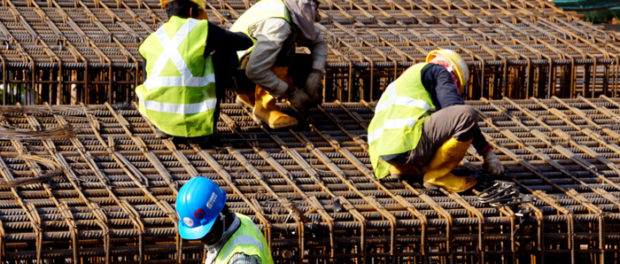UK depends on immigrant construction labour, research shows

In new research commissioned by the Construction Industry Training Board, it shows the full extent of the UK’s dependency on immigrant construction labour.
The large-scale, GB-wide research, by CITB, IFF Research and the Institute of Employment Research at Warwick University, interviewed 248 migrant workers, 401 construction employers and 50 recruitment agencies across Great Britain to provide a detailed and up-to-date picture of the role migrant workers play in the construction industry.
Key findings from the research included:
- 1 in 3 British construction firms employ migrant workers, citing skills and availability as top reasons
- Half of London construction firms heavily reliant on migrant workers
- 2 in 5 employment agencies expect staff shortages due to Brexit
- Migrant workers give flexibility but just 1% of firms specifically look to recruit them
- Half of firms with migrant labour expect impact from potential migrant caps
- 75% of migrant workers still expect to be in UK construction in a year’s time
- 54% expect to stay in the UK until they retire
More than a third of employers who employ staff from outside the UK say they do so because there are not enough skilled applicants from the UK, rather than for cheaper labour. The issue is magnified in London where one in two employers say they are ‘very dependent’ on migrant workers, compared to around one in six in Yorkshire and the Humber.
The study dispelled some common misconceptions around migrant pay, skills levels and occupations. It showed that only 1% of employers say that migrants are cheaper and that the majority of non-UK construction workers are skilled, with over two-thirds holding a construction-related qualification. Two-thirds of employment agencies reported that migrant workers have similar skills to their UK counterparts.
Professor Anne Green, who carried out the research at Warwick University’s Institute of Employment Research, said: “The UK construction sector relies on migrant labour alongside UK workers to meet demand. This is especially the case in London. Migrant labour plays a key role in offering flexibility for the sector to respond in a timely fashion to project requirements. This means that the future immigration policy matters, as does training of UK workers.”
The research also showed that while the largest number of migrant workers (22%) are general labourers (22%), there is a wide spread across many skilled areas such as architects (15%), carpenters/joiners (13%), plasterers (13%), bricklayers (11%), and directors/managers/supervisors (9%).
Recruitment agencies reported that EU nationals are more commonly placed than non-EU migrant workers and two in five agencies are expecting staff shortages due to Brexit. One quarter of employers reported at least one impact of Brexit on their company to date, with the most common being increased costs (12%), followed by project delays due to uncertainty and a lack of client investment.
The agencies interviewed placed an average of 18 individuals per week into construction and reported that on average 30% of these individuals came from the EU and 5% were from outside the EU.
London-based construction firms were more likely to report impacts because of Brexit including a lack of client investment (23%), project delays (19%) and staff shortages (13%).
